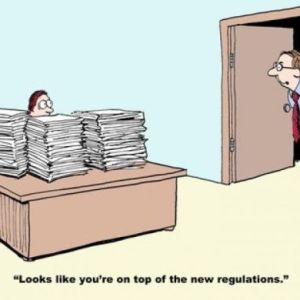Credibility and good ethics are essential to keeping a business sustainable. Businesses and investors are outdoing each other to puff up their green credentials, after all, impressing customers, staff and peers with how green we can be is according to many surveys a key success factor. ASIC is now finally cracking down on so called “Greenwashing”, where companies distort or exaggerate their greenness. Why is this important?
London-based Behavioural Insights undertook the largest study of its kind by creating three fake media advertisements for three imaginary energy companies. One of the ads said the company was “going green” with no data to back up the claim, a second said it had a “carbon footprint calculator”, and the third only pushed its ability to create jobs.
The study showed up the gullibility of consumers and investors. 57% (of 2,400 survey participants) believed that the unsubstantiated ads were a reliable source of information. Even worse, a majority of respondents claimed that the companies claiming to be green had stronger credentials than the company pushing job creation.
Another study by Responsible Investment Association of Australasia suggests that almost 90% of the Australian investment market claims to be “responsible”, but just 40% actually try to do something about it when making investment decisions.
ASIC started in July last year to take Greenwashing more seriously. Up to the end of March 2023, they had taken action against 35 entities. 23 had been forced to amend public statements, 11 issued infringement notices, and one a civil penalty action. The first targets appear to have been mining companies but also some managed funds. Considering the initial surveillance only covered 139 managed funds and they caught 15 out, the additional resources ASIC are putting into this area appear to be well targeted.
The problem for ASIC (and probably why not even more had action taken against them) is that rules for ESG (Environmental, Social and Governance) are so vague in Australia and internationally that any company or fund can make claims with very little monitoring or follow up of whether the promises are achieved. Currently they are targeting net zero statements and targets, and terms such as “carbon neutral”, “clean” or “green”. This includes social media statements and the like; backing up ESG related disclosures in disclosure documents or financial reports; or claiming that a company is doing something when at best it is planning to do or achieve something.
Full credit to ASIC for starting to look into this. But there is plenty more work to be done. I’ve always wondered how the whole “carbon offset” market actually works, as most of these credits are bought from companies overseas – how is it verified that the offset is new (additional) or indeed there at all? Or how anything that sources power from the electricity grid can claim to have zero CO2 emissions when over 80% of Australia’s electricity generation comes from fossil fuels?
Companies with >$100 million in turnover now survey most of their suppliers and ask questions about ESG matters, but it seems like they blindly accept the responses. That’s probably because it is near on impossible to check or verify most of the questions. Does your company use child labour? Does anybody REALLY believe that someone using child labour wouldn’t hesitate to lie to that question? Other examples include that there has been plenty of media information about the use of child labour to extract cobalt for use in batteries, but companies using battery technology are amongst the loudest at promoting ESG.
Other areas ASIC need to target include the Sole Purpose Test, where super and managed funds sole purpose is to make decisions that are in the best retirement interests of their members, not their current interests or interests of related parties (decisions should be based solely on the financial performance of the investment).
The next time you hear a company espousing its ESG credentials, perhaps ask them to substantiate their claims before accepting them at face value. Just because someone says it’s so, doesn’t mean it’s so.
Act now – Instant Asset Write off slashed
The Federal Budget has slashed the Instant Asset Write off, so you have until 30th of June to have purchased and put into use assets under the current scheme. Whilst still to be passed through parliament (if it isn’t the limit will be $1,000), details on the new scheme are as follows:
The instant asset write-off will only apply to small businesses, and the threshold has been lowered to $20,000, from 1 July 2023 until 30 June 2024.
Small businesses, with aggregated turnover of less than $10 million, will be able to immediately deduct the full cost of eligible assets costing less than $20,000 that are first used or installed ready for use between 1 July 2023 and 30 June 2024.
The $20,000 threshold will apply on a per asset basis, so small businesses can instantly write off multiple assets.
Assets valued at $20,000 or more (which cannot be immediately deducted) can continue to be placed into the small business simplified depreciation pool and depreciated at 15% in the first income year and 30% each income year after that.
Words from the wise
“Just because someone says it’s so, doesn’t make it so.”
“Relationships feed on credibility, honesty, and consistency” – Scott Borchetta
“Transparency increases credibility and accountability.” – Park Won-soon.
As always, Onwards and Upwards!
Fred Carlsson
General Manager




